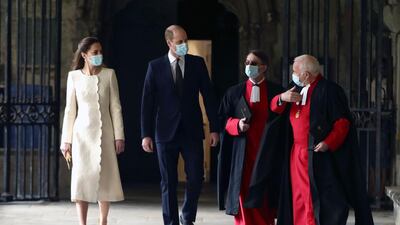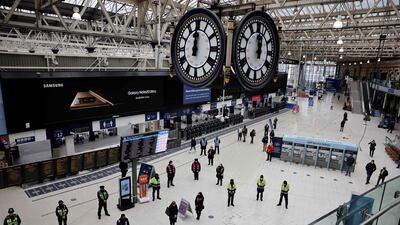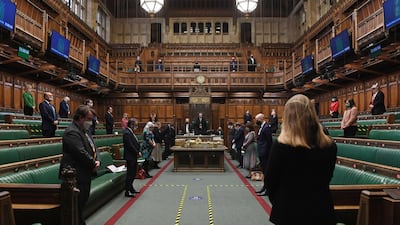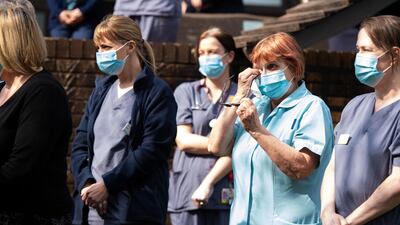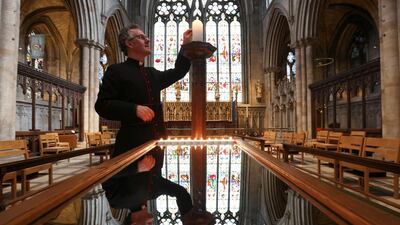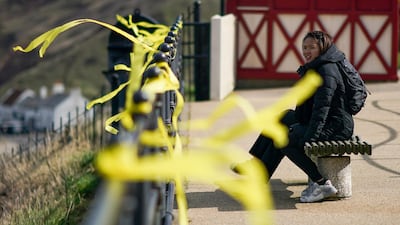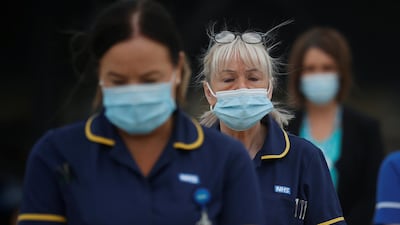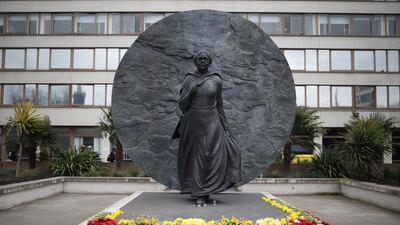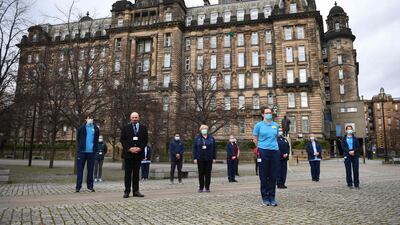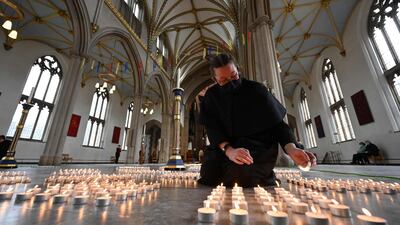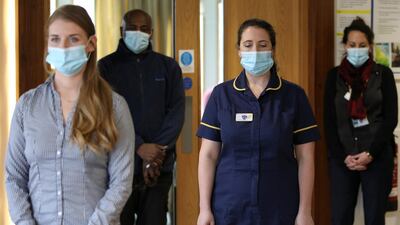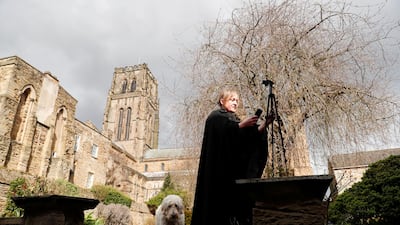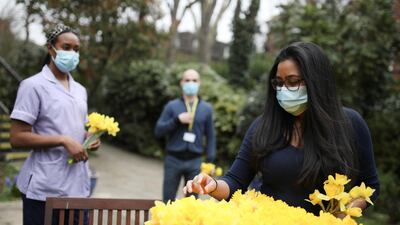Queen Elizabeth II on Tuesday led tributes to the victims of the Covid-19 pandemic on the first anniversary of Britain's initial lockdown.
The country fell silent at noon to remember the more than 146,000 people who died from coronavirus.
The queen spoke of the nation's collective grief and marked the poignant anniversary by sending flowers to the hospital where her husband, the Duke of Edinburgh, recently had heart surgery.
A message was attached to a bouquet of flowers sent from Windsor Castle to St Bartholomew’s Hospital in central London.
“As we look forward to a brighter future together, today we pause to reflect on the grief and loss that continues to be felt by so many people and families, and pay tribute to the immeasurable service of those who have supported us all over the last year," the queen's message read.
The Duke and Duchess of Cambridge marked the anniversary with a visit to a Covid-19 vaccination centre at London's Westminster Abbey.
Prime Minister Boris Johnson, who was admitted to intensive care with Covid-19 in April 2020, opened Tuesday's Cabinet meeting by reflecting on "a very dark and difficult year".
His spokesman said he told ministers the nation was mourning the dead, and he paid tribute to health and care workers and to society as a whole for keeping the country going.
The past year has tested people with repeated lockdowns, forced separation from family and friends, months of home-schooling for millions of children and entire industries mothballed and fighting for survival.
In the evening, landmarks across the UK, from the London Eye, Trafalgar Square and Wembley Stadium to Cardiff Castle and Belfast City Hall, will be lit up in yellow as a beacon of hope and support for the bereaved.
Six million people have been bereaved, said the end-of-life charity Marie Curie.
"Let us take a moment together to remember those who have been lost, to give thanks for their lives, and to acknowledge the inexpressible pain of parting," Prince Charles, heir to the throne, said in a video message.
Earlier, Mr Johnson said Covid-19 restrictions were being eased “once and for all” as he praised the “great spirit” shown by Britain in tackling Covid-19.
When Mr Johnson announced the UK's first lockdown, 364 people had died. The official death toll is now more than 146,000 people, according to government's coronavirus dashboard.
With Britain suffering one of the highest death tolls in the world, Mr Johnson came under fire for moving too slowly last year to tackle the first and second waves of the pandemic, with some accusing him of prioritising the economy over health.
But his government has overseen a successful vaccination campaign, reaching more than half of Britain's adult population, and he is adopting a cautious approach to easing the latest lockdown.
UK's Covid-19 fight - in pictures
Mr Johnson said the past year had “taken a huge toll on us all”.
“Today, the anniversary of the first lockdown, is an opportunity to reflect on the past year – one of the most difficult in our country’s history,” he said.
“We should also remember the great spirit shown by our nation over this past year. We have all played our part, whether it’s working on the front line as a nurse or carer, working on vaccine development and supply, helping to get that jab into arms, home-schooling your children, or just by staying at home to prevent the spread of the virus.
“It’s because of every person in this country that lives have been saved, our National Health Service was protected, and we have started on our cautious road to easing restrictions once and for all.”
On March 23 last year, Mr Johnson ordered the first lockdown to try to stem the spread of the coronavirus, telling Britain that people should "stay at home", part of a slogan on saving lives that has become a common refrain.
The prime minister promised to "turn the tide" of the outbreak within 12 weeks of the initial lockdown.
But Mr Johnson required treatment in intensive care after catching the virus shortly after announcing the first lockdown.
He was in an ICU for three days and given oxygen, requiring Foreign Minister Dominic Raab to take over for three weeks during the darkest days of the first wave.
A year later, England is now in its third lockdown, with the UK having recently suffered its latest and deadliest coronavirus wave.
Last month, Mr Johnson unveiled a roadmap to ease the lockdown, starting with the reopening of schools two weeks ago and ending on June 21 at the earliest when most of the restrictions are scheduled to be lifted.
As the UK starts easing restrictions, there are concerns about a third wave of coronavirus sweeping Europe, prompting new lockdowns on the continent.
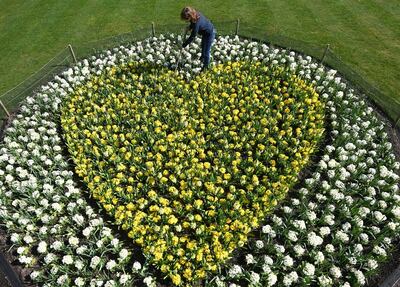
Mr Johnson highlighted the precariousness of the situation on Monday, warning that new cases will enter the UK.
“Experience has taught us that when a wave hits our friends, it washes up on our shores as well,” he said.
“I expect that we will feel those effects in due course.”
